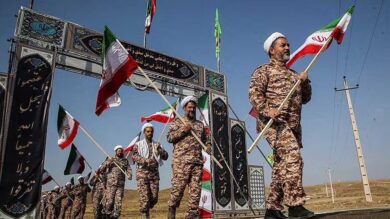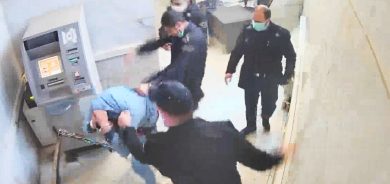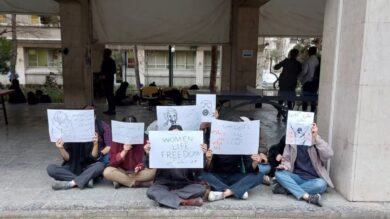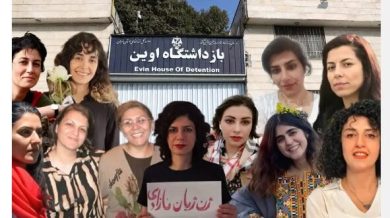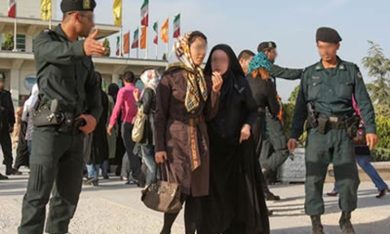In the Islamic Republic of Iran, resistance is not just political—it is deeply personal. For decades, brave Iranian activists have defied one of the regime’s most powerful institutions: the Islamic Revolutionary Guard Corps (IRGC). This elite paramilitary force not only controls vast swaths of Iran’s economy and military infrastructure, but it also acts as a tool of domestic repression, targeting journalists, students, women, minorities, and civil society leaders.
As the Iranian people continue to demand freedom, dignity, and democratic reform, activists face arrest, torture, censorship, and exile—yet they persist. This report documents the struggle between Iranian civil society and the repressive machinery of the IRGC, offering insights into the methods of resistance, stories of courage, and the global movement supporting their cause.
1. The IRGC: Iran’s Repression Engine
Formed in 1979 to protect the Islamic Revolution, the IRGC has evolved into a military, political, and economic superpower. It controls:
• Iran’s ballistic missile program
• Vast portions of the economy, including energy, construction, and telecommunications
• The Basij, a volunteer paramilitary force used for domestic suppression
• Powerful intelligence units that conduct surveillance, arrests, and interrogations
The IRGC enforces the regime’s will through:
• Crackdowns on peaceful protests
• Censorship and internet blackouts
• Targeted arrests and long prison sentences
• Psychological and physical torture
These tactics are aimed at silencing the very people who dare to demand a different future for Iran.
2. Who Are the Activists?
Iranian activists come from all walks of life. What unites them is a commitment to freedom and justice in the face of immense personal risk. Key groups include:
A. Women’s Rights Defenders
Women in Iran have been central to the resistance, especially since the “Women, Life, Freedom” movement gained momentum after the killing of Mahsa Jina Amini in 2022.
Notable figures:
• Narges Mohammadi: Human rights activist and Nobel Peace Prize laureate, imprisoned repeatedly for opposing the regime and the death penalty.
• Nasrin Sotoudeh: Renowned human rights lawyer, jailed for defending women’s rights and political prisoners.
• Sepideh Gholian: Journalist and labor activist, subjected to torture and harassment for exposing prison conditions and corruption.
B. Student and Labor Movements
University students and labor unions have been critical in organizing protests against economic injustice and authoritarianism.
• Student groups regularly face surveillance, expulsion, and arrest.
• Labor leaders are often arrested for organizing strikes or demanding better conditions.
C. Minority and Ethnic Activists
Kurdish, Baluchi, Arab, and Baháʼí communities often face double repression—for both their identity and political activism.
D. Journalists and Digital Activists
Despite censorship, many use social media and encrypted platforms to document abuses, organize resistance, and amplify voices inside Iran.
3. Tactics of the IRGC to Silence Dissent
The IRGC employs a range of brutal and calculated tactics to suppress civil activism:
A. Arrests and Torture
Activists are often arrested in midnight raids, held in solitary confinement, and denied legal representation. Many are forced to give false confessions under torture.
B. Show Trials and Long Sentences
Activists are tried in Revolutionary Courts, often without due process. Sentences range from years in prison to lashes and even death.
C. Digital Surveillance
The IRGC’s cyber unit monitors online activity, hacks accounts, and shuts down the internet during protests to cut off communication with the outside world.
D. Harassment of Families
The regime frequently intimidates the families of activists, including arrests, job loss, or threats of violence.
4. The Power of Resistance: Voices That Refuse to Be Silenced
Despite the dangers, Iranian activists continue to organize, protest, and speak out.
A. Women, Life, Freedom
The 2022–2023 protests, led largely by young women, spread across the country in response to systemic violence and oppression. Even after brutal crackdowns, protests reignited again and again, showing the resilience of a people who have lost fear.
B. Online Campaigns
Hashtags like #MahsaAmini, #FreeIran, and #WomenLifeFreedom trended globally. Diaspora Iranians, human rights organizations, and influencers helped amplify Iranian voices, bringing global attention to the crisis.
C. Diaspora Solidarity
Iranians abroad have organized rallies, lobbied governments, and created platforms to document abuse. Their advocacy has helped build international pressure on the Iranian regime.
5. International Recognition and Support
A. Sanctions and Terrorist Designations
The IRGC is designated as a terrorist organization by the United States, and other governments, including Canada and the UK, have sanctioned IRGC members for human rights violations.
B. Human Rights Resolutions
The UN, European Parliament, and NGOs have issued multiple resolutions condemning Iran’s treatment of activists and calling for the release of political prisoners.
C. Nobel Peace Prize for Narges Mohammadi
Her 2023 Nobel Prize highlighted the regime’s abuse of women and brought renewed attention to Iran’s civil resistance movement.
6. What Needs to Happen Next
For Iranian activists to succeed, global support must go beyond words. Key steps include:
• Designating the IRGC as a terrorist organization in more countries
• Imposing targeted sanctions on human rights abusers
• Protecting digital rights by supporting secure communication platforms
• Providing asylum and protection to at-risk activists
• Supporting diaspora-led efforts to raise awareness and lobby governments
Conclusion
The battle between Iranian activists and the IRGC is a struggle between oppression and freedom, between silence and voice. The bravery of these activists—especially the women and youth—has inspired a global movement that demands not only awareness but action.
Join Our Newsletter!
Stay informed with the latest updates, news, and ways to take action in the fight for justice and global security. Sign up now to get updates delivered straight to your inbox!

